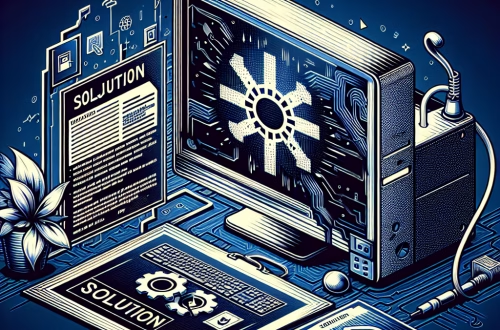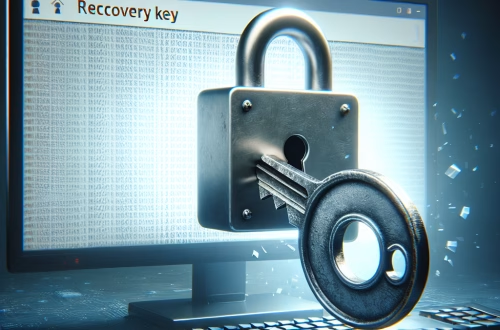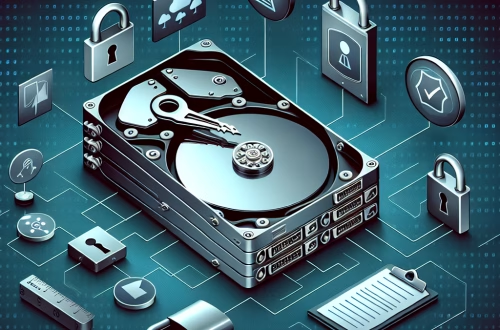Performance Impact Of BitLocker On Gaming Explained:
BitLocker, Microsoft’s full-disk encryption feature, can introduce a slight performance overhead when gaming due to the real-time encryption and decryption of data. This impact is most noticeable on systems with slower storage (HDDs) or older CPUs lacking hardware-accelerated encryption (AES-NI). Modern SSDs and CPUs minimize the performance penalty, but latency-sensitive applications like high-FPS games may still experience minor frame rate drops. Common triggers include loading large game assets, frequent disk I/O operations, or running games from an encrypted drive.
What This Means for You:
- Immediate Impact: Gamers may observe slightly longer load times or minor frame rate fluctuations, especially on non-optimized systems.
- Data Accessibility & Security: While BitLocker secures your data, ensure your recovery key is accessible to avoid lockouts during system updates or hardware changes.
- System Functionality & Recovery: Monitor system performance and consider disabling BitLocker temporarily for benchmarking if you suspect significant gaming performance degradation.
- Future Outlook & Prevention Warning: Future Windows updates and hardware advancements will further reduce BitLocker’s performance impact, but always balance security needs with gaming performance requirements.
Performance Impact Of BitLocker On Gaming:
Solution 1: Verify Hardware Encryption Support
Modern CPUs with AES-NI (Advanced Encryption Standard New Instructions) significantly reduce BitLocker’s performance impact. To check if your system supports hardware encryption:
- Open PowerShell as Administrator.
- Run:
Get-WmiObject -Namespace "root/cimv2/Security/MicrosoftTPM" -Class Win32_EncryptableVolume | Select-Object -Property EncryptionMethod - If the output shows “XTS-AES 128” or “256,” hardware encryption is active.
If unsupported, consider upgrading your CPU or using software encryption (with a slight performance trade-off).
Solution 2: Optimize BitLocker Settings for Gaming
Adjust BitLocker’s encryption method to balance security and performance:
- Open Command Prompt as Administrator.
- For XTS-AES 128-bit (faster):
manage-bde -setencryption -method XTS_AES128 -usedspaceonly C: - For used space-only encryption (faster initial setup): Append
-usedspaceonlyto the command. - Reboot to apply changes.
Note: XTS-AES 128 offers slightly better performance than 256-bit with minimal security reduction for most users.
Solution 3: Separate Gaming and System Drives
Isolate performance-sensitive gaming data from encrypted system files:
- Install games on a secondary drive (SSD preferred).
- Encrypt only the system drive (C:):
manage-bde -on C: -usedspaceonly - Leave the gaming drive unencrypted or use device encryption (faster than full BitLocker).
This maintains system security while minimizing game performance impact.
Solution 4: Disable BitLocker for Performance Testing
Temporarily disable BitLocker to isolate performance issues:
- Open “Manage BitLocker” in Control Panel.
- Select “Suspend protection” for the game drive.
- Reboot and benchmark game performance.
- Re-enable afterward:
manage-bde -protectors -enable C:
Warning: Only suspend protection temporarily and never on portable devices.
People Also Ask About:
- Does BitLocker affect FPS? Typically by 1-3% on modern systems, but can be higher on HDDs or old CPUs.
- Should I turn off BitLocker for gaming? Only for temporary benchmarking; the security trade-off isn’t worth permanent disablement.
- Does BitLocker slow down SSDs? Negligibly on NVMe SSDs with AES-NI (under 2% impact).
- Can BitLocker cause stuttering? Rarely, but possible during heavy asset streaming on encrypted HDDs.
- Is BitLocker worth it for gaming PCs? Yes for portable systems; evaluate risk vs. performance for stationary rigs.
Other Resources:
- Microsoft’s BitLocker performance guidance: Microsoft Docs
- Tom’s Hardware encryption performance tests: Tom’s Hardware
Suggested Protections:
- Upgrade to an AES-NI supported CPU if using older hardware
- Use NVMe SSDs for encrypted game storage
- Implement used-space-only encryption for faster performance
- Maintain current recovery keys in multiple secure locations
- Regularly benchmark performance to detect abnormal degradation
Expert Opinion:
“While BitLocker’s gaming performance impact is often overstated, competitive gamers chasing every frame should consider a tiered approach: full encryption for system drives while keeping high-performance gaming storage either unencrypted or using hardware-accelerated encryption. The security benefits nearly always outweigh the minor performance costs for most users.” – Windows Security Engineer
Related Key Terms:
- BitLocker performance tuning
- AES-NI gaming impact
- Disk encryption FPS drop
- XTS-AES vs gaming
- SSD encryption overhead
- TPM 2.0 gaming
- Used space-only encryption
*Featured image sourced by Pixabay.com



